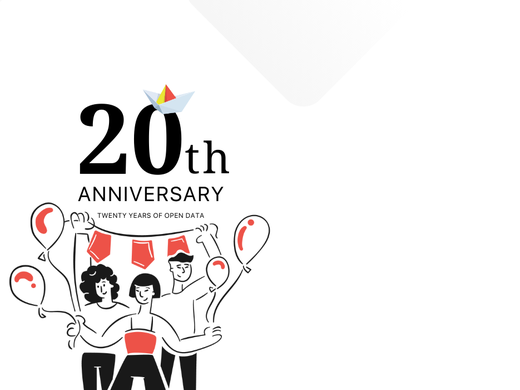The Orbital project is a
JISC-funded project, based at the University of Lincoln, to develop a robust infrastructure for research data management. They have made the exciting decision to use CKAN as the primary platform for the project, to handle data storage, querying, archiving and search. Joss Winn, the Project Manager, has
written about the decision on the Orbital blog.
Parallel development
I first met Joss along with Nick Jackson, one of the two Orbital programmers, at this year's
Open Repositories conference, an annual week-long event dedicated to tools for managing and archiving academic research output. The main tools in this area are focused heavily on the archiving side, so I had submitted a conference
poster, which was accepted, outlining the complementary features CKAN could offer. Orbital were already aware that their platform was developing in a number of directions that were parallel to CKAN, and the poster further convinced them to look into the possibility of adopting it.
As a result, CKAN developer Ross Jones, Peter Murray-Rust of the OKF's advisory board, and I spent a day with the Orbital team and others from the Lincoln's innovative
LNCD group. Joss's post describes the meeting and the benefits Orbital saw from using CKAN, including the knowledge that it would continue to be widely used and supported, whatever the fate of Orbital after its current funding runs out next March. (We didn't spend all day in the pub – the picture below was taken the previous evening.)
[caption id="" align="alignnone" width="500"]
![CKAN meets Orbital [IMG: CKAN and Orbital team members]](http://farm9.staticflickr.com/8286/7823001500_f0031d5bec.jpg)
L to R: Joss Winn, Ross Jones, Mark Wainwright, Alex Bilbie, Peter Murray-Rust, Harry Newton, Nick Jackson[/caption]## Student as Producer
Of course we were also delighted with the outcome of the day, the more so as we were very impressed by the LNCD group's vision, as well their enthusiasm and technical ability. LNCD stands for 'LNCD is Not a Central Development group' - a typically self-effacing gesture from a group that aims to facilitate University research and teaching while putting control firmly in the hands of users.
LNCD was formed in response to Lincoln's radical and exciting
Student as Producer project, designed to make students a central part of the University's research and other functions, not merely passive recipients of teaching. This has already had concrete expression in the way most of LNCD's programmers, including Nick and Harry on Orbital, are recent graduates of the University who started their involvement with the project as students.
Roadmap
LNCD's work with CKAN will involve integrating it with other parts of the Orbital platform. This is likely to include developing CKAN extensions to integrate with the open-source cloud storage service
OwnCloud, with
MongoDB for data storage as an alternative to the default Postgres-based datastore, and with the
SWORD2 data deposit protocol widely used by academic repositories. The core of CKAN is likely to benefit too, especially from their detailed knowledge of authorisation and
OAuth. Since they also intend to develop tailored user documentation and workshops, they will have plenty to do.
This will be a big win for both Orbital and CKAN. Orbital will be getting functionality it needs from a mature and supported product that has been road tested by national governments. CKAN, besides their direct contributions, will be used by working scientists in data-heavy environments - a great addition to the user base of the world's leading open-source
data management system. We're all looking forward to seeing how the project develops. Watch this space!
![CKAN meets Orbital [IMG: CKAN and Orbital team members]](http://farm9.staticflickr.com/8286/7823001500_f0031d5bec.jpg) L to R: Joss Winn, Ross Jones, Mark Wainwright, Alex Bilbie, Peter Murray-Rust, Harry Newton, Nick Jackson[/caption]## Student as Producer
Of course we were also delighted with the outcome of the day, the more so as we were very impressed by the LNCD group's vision, as well their enthusiasm and technical ability. LNCD stands for 'LNCD is Not a Central Development group' - a typically self-effacing gesture from a group that aims to facilitate University research and teaching while putting control firmly in the hands of users.
LNCD was formed in response to Lincoln's radical and exciting
L to R: Joss Winn, Ross Jones, Mark Wainwright, Alex Bilbie, Peter Murray-Rust, Harry Newton, Nick Jackson[/caption]## Student as Producer
Of course we were also delighted with the outcome of the day, the more so as we were very impressed by the LNCD group's vision, as well their enthusiasm and technical ability. LNCD stands for 'LNCD is Not a Central Development group' - a typically self-effacing gesture from a group that aims to facilitate University research and teaching while putting control firmly in the hands of users.
LNCD was formed in response to Lincoln's radical and exciting 
